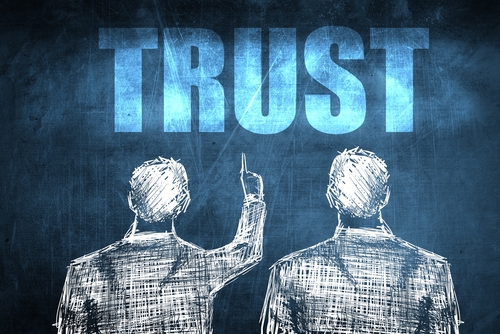Over the course of January and February of this year I participated in a number of Data Privacy Day 2014 events across the world. Without exception, these events were well organised and presented a broad set of viewpoints on the topics of privacy, surveillance and data protection.
Government officials, academics, vendors, industry groups, think tanks, activists and many others participated in these events regardless of location. In spite of all of this, I was struck by the lack of discussion on the notion of trust.
Trust by definition is a complex construct and speaks to confidence, duty, veracity, reliance and obligation. In my mind, trust is hard to achieve, easy to loose, and almost impossible to regain, and yet those who spoke so passionately about privacy did not give it much coverage in their remarks.
Privacy, information security and regulatory compliance are three of the pillars of the foundation of trust in respect to the gathering and use of consumer information (data). The others can be lumped into the category that I call ‘faith’.
Trust cannot be achieved based on technology and regulation alone, it must be driven by actual behavior (this is where faith comes in). The appropriate behaviors that manifest trust come from the adherence to a common set of beliefs (norms, mores, etc.) that then drive acceptable actions (and consequences if not conformed to).
In today’s society, trust is in short supply and becoming scarcer by the day. If you look around you at the former stalwarts of trust (religion, government and family) all fall far short in currently meeting the definition, and continue to slip into the abyss no matter where you may be located.
Achieving trust is essential to realising our collective vision for an information-enabled society; one that empowers the consumer to achieve a better life while in a symbiotic partnership with government and commerce. This trust mechanism is not limited to just our retail, online and mobile data-driven activities, but is at the core of the entire open data societal movement and all that it portends.
The critical path to trust can be found in the creation of virtuous cycle where the collection, dissemination, analysis and protection of consumer information is managed and monitored holistically based upon what I have been calling ‘a universal privacy doctrine’. (In today’s world, I would characterise this as a vicious circle full of discontinuities and trust disablers).
The universal privacy doctrine is the basis for codifying the mechanisms of trust between all parties. It transcends local governments and their parochial needs, and has a global reach perspective. Some might like to call it the ‘Geneva Accord for Privacy’.
See also: Do you really need a chief data officer?
Has data privacy day become a feel-good event (and nothing else)?
I am disappointed by how corporate the whole DPD thing has become. At the events in Washington DC and Seattle, it was an atmosphere of ‘there to be seen’ and not much angst about how far off the mark we are in terms of having any privacy whatsoever at this point.
I was awestruck by the hubris of the social media and internet services speakers, with their empty platitudes about ‘respecting customer privacy’, but gave some cred to the government folks for showing how conflicted they were personally about the dubious nature of their work. I certainly hope that this does not debilitate into an annual Feel Good Day going forward.
Legislation, lawsuits and posturing will not overcome the issues of trust
As we try to come up with a rational approach to creating and sustaining trust between consumers, governments and commerce, we need to be ever conscious of the need to comport ourselves in a way that fosters basic trust in the process itself. Continuing the war of attrition and hype will push the consumer further away from the process, and instill a complete lack of trust in the outcome. We must all take the high road in order to get to a successful outcome.










